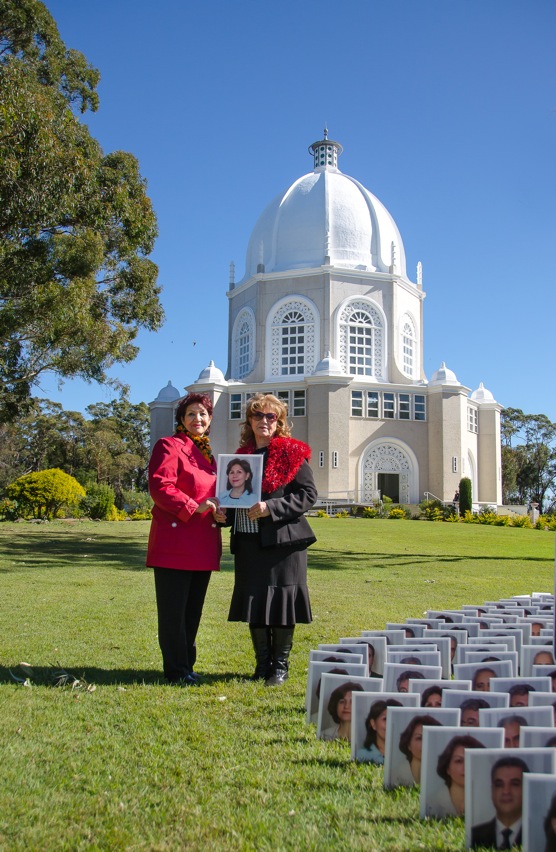
The first of seven Baha’i leaders to be unjustly imprisoned in 2008 was Mahvash Sabet, a poet whose thoughts and feelings have since inspired people the world over.
While in her cell, Mrs Sabet, 62, secretly wrote verses of insight, poignancy and spiritual upliftment that have been published in her book “Prison Poems”*.
In Australia, where Mrs Sabet has relatives, the book had its Australian launch last year.
Two lines from her poem “Turmoil” have inspired the placement of a heart-shaped installation in front of the Sydney Baha’i Temple.
“If I’m in this prison now, it’s only because
I’ve committed the crime of love again.”
The installation is part of a week-long national and global campaign (14-21 May) to call for the release of the seven Baha’i leaders, who are now serving a 20 year sentence.
This month marks the seventh anniversary of the arrest and imprisonment of the seven leaders following raids on their homes by squads of the Iranian regime. They were tried on spurious charges in a sham trial, which was widely condemned by the international community, including Australia.
Mrs Sabet’s aunt, Ghodsieh Samimi of Sydney, remembers that for months after her beloved niece was arrested, none of her family knew her whereabouts or even if she was alive or not.
Eventually Mrs Sabet was able to phone her husband and tell him where she was imprisoned. She has since endured terrible conditions in prison but her spirit remains strong and radiant.
American journalist Roxana Saberi who shared a cell with her and fellow Baha’i leader Fariba Kamalabadi, said they were the two prisoners who inspired her the most.
“They showed me what it means to be selfless, to care more about community and beliefs than about oneself,” Ms Saberi wrote in her best seller “Between Two Worlds”.
